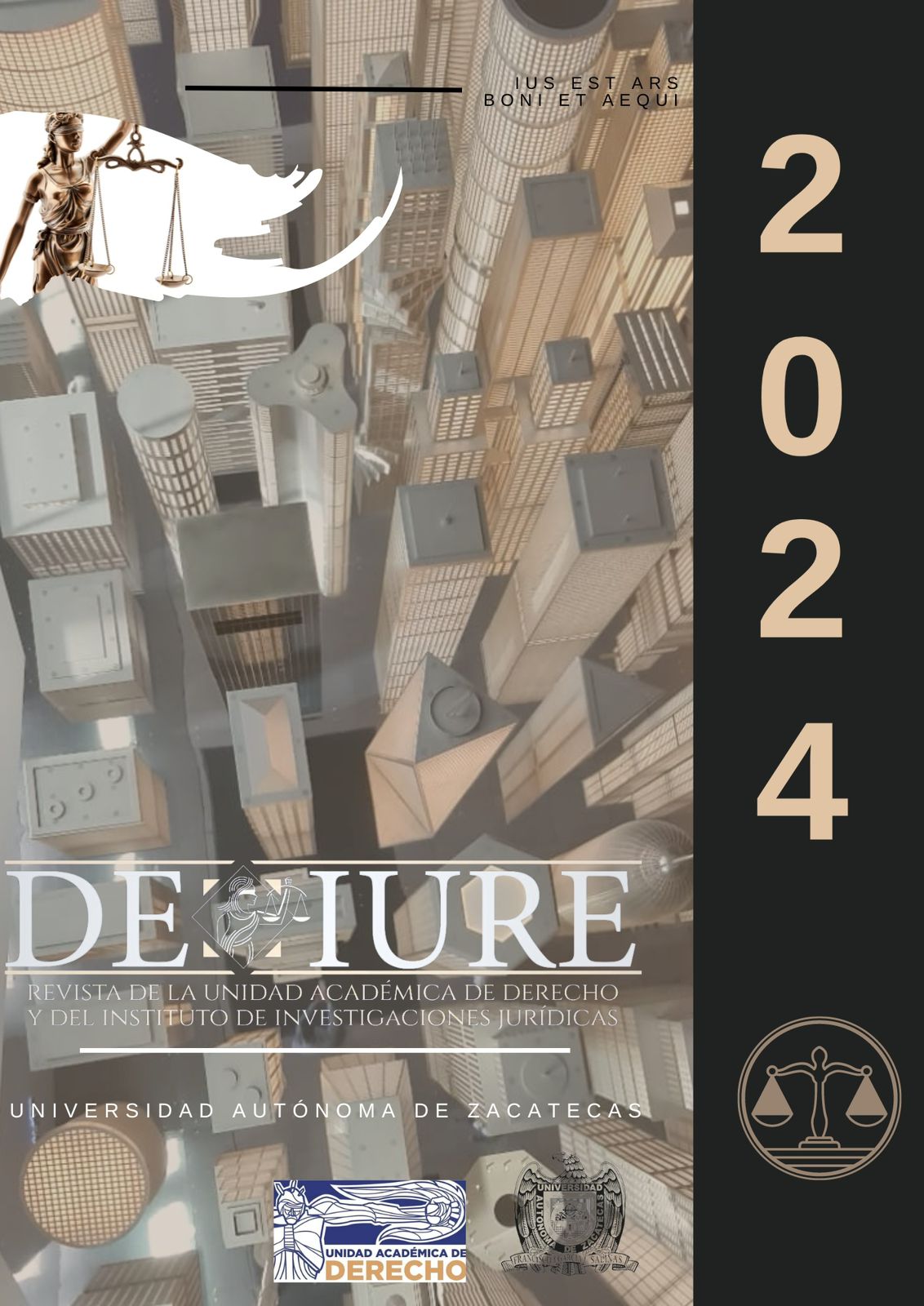Artículos
DESARROLLO HUMANO EN UN MUNDO EN CAMBIO (El difícil tránsito del Antropoceno al Novaceno): El difícil tránsito del Antropoceno al Novaceno
Published 2024-12-28
Keywords
- Inteligencia artificial,
- desarrollo humano.
How to Cite
DESARROLLO HUMANO EN UN MUNDO EN CAMBIO (El difícil tránsito del Antropoceno al Novaceno): El difícil tránsito del Antropoceno al Novaceno. (2024). DE IURE, 6(3), 13. https://doi.org/10.48703/qf7sfm32
Abstract
The objective of this research is to present the existing disorder in a world thatrests on the globalization of the capitalist system and makes us perceive a future
full of contradictions. As a result, we see that while a Rober taxis on Mars and
exchanges information with a helicopter that he carried on himself in outer space,
a swarm of scientists controls his movements thousands of kilometers away, while on
Earth, at the same time While explorations on Venus and exoplanets continue, sparked
by wars, it shows the decadence of the ideas and culture that Western civilization
created over time and today wants to impose by force on all nations. We conclude
that in the 21st century there is increasing awareness about the catastrophic end of
the Anthropocene and the beginning of a new era, the Novacene, when science
artificially reproduces species and infinite possibilities appear in the case of animals
and plants. The debate is open, with an ethical and moral background, about the
creation of living inorganic beings and how far to go with artificial intelligence.
Downloads
Download data is not yet available.
References
Barranco, Justo (2021, septiembre). “El padre de la hipótesis Gaia vuelve con cien años para anunciar la llegada de los cíborgs”. La Vanguardia”. https://www.lavanguardia.com/cultura/20210908/7706273/padre-hipotesis-gaia-vuelve-100-anos.html.
Cejudo Córdoba, Rafael (2006): “Desarrollo humano y capacidades. Aplicaciones de la teoría de las capacidades de Amartya Sen a la educación”. Revista española de Pedagogía.
Hamilton, Edmond: "After a Judgmente Day" en The Best of Edmond Hamilton. Ed. Leigh Brackett, 1977, pág. 315
Harari, Yubal Noah (2020): HOMO DEUS, Una breve historia del mañana, Ed. Penguim Random House, Ciudad de México.
Lanier. Jaron (2019): El futuro es ahora, Debate, Penguin Random House, Barcelona España.
Liz-Rejane Issberner y Phippe Léna: “Antropoceno: la problemática vital de un debate científico, UNESCO. El Correo, Publicación Digital, abril-junio, 2018.
Lovelock G, et alt. (1987) Gaia, implicaciones de la Nueva Biología. Editorial Kairos.
P.N.U.D. (2000): Informe, Ed. Naciones Unidas (ONU).
P.N.U.D. (2004): Informe, Ed. Naciones Unidas (ONU).
Rodríguez-Medina, Leandro, María de los Ángeles Pozas y Lidia Girola (2022): La teoría del actor-red desde América Latina, Colegio de México, Ciudad de México.
Shiraz Sidhva, entrevista a Dipesh Chakrabarty, reproducida en el artículo titulado: “La humanidad es una fuerza geológica”, Consultado el 23.09.21, en gideonmendel.com/submerged-portraits.
Smil, Vaclar (2021): Energía y civilización, Arpa, Barcelona, España.
Cejudo Córdoba, Rafael (2006): “Desarrollo humano y capacidades. Aplicaciones de la teoría de las capacidades de Amartya Sen a la educación”. Revista española de Pedagogía.
Hamilton, Edmond: "After a Judgmente Day" en The Best of Edmond Hamilton. Ed. Leigh Brackett, 1977, pág. 315
Harari, Yubal Noah (2020): HOMO DEUS, Una breve historia del mañana, Ed. Penguim Random House, Ciudad de México.
Lanier. Jaron (2019): El futuro es ahora, Debate, Penguin Random House, Barcelona España.
Liz-Rejane Issberner y Phippe Léna: “Antropoceno: la problemática vital de un debate científico, UNESCO. El Correo, Publicación Digital, abril-junio, 2018.
Lovelock G, et alt. (1987) Gaia, implicaciones de la Nueva Biología. Editorial Kairos.
P.N.U.D. (2000): Informe, Ed. Naciones Unidas (ONU).
P.N.U.D. (2004): Informe, Ed. Naciones Unidas (ONU).
Rodríguez-Medina, Leandro, María de los Ángeles Pozas y Lidia Girola (2022): La teoría del actor-red desde América Latina, Colegio de México, Ciudad de México.
Shiraz Sidhva, entrevista a Dipesh Chakrabarty, reproducida en el artículo titulado: “La humanidad es una fuerza geológica”, Consultado el 23.09.21, en gideonmendel.com/submerged-portraits.
Smil, Vaclar (2021): Energía y civilización, Arpa, Barcelona, España.

